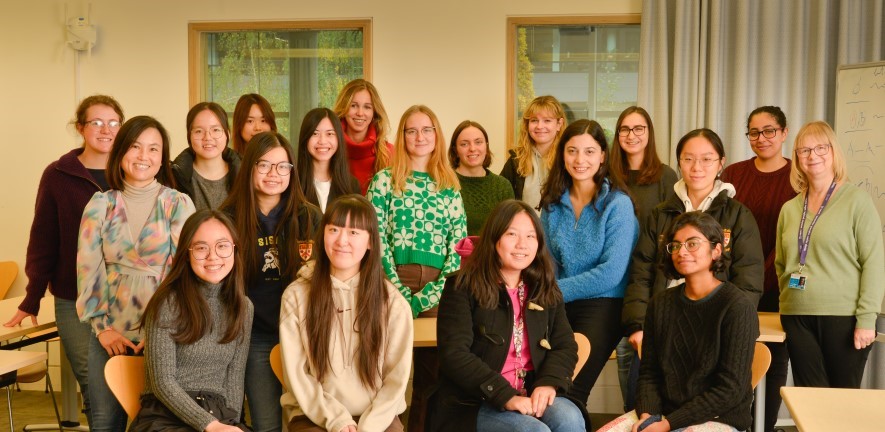This is a series of four weekly webinars held on Tuesday evenings, 5-6pm from 18 February - 18 March 2025 for students in Year 12 (S5 in Scotland/Year 13 in Northern Ireland).
These sessions are completely free and open to prospective students who would like to learn more about different topics in Computer Science. They are led by female and non-binary members of the Department and explore a topic of the presenter’s choice.

The sessions are run as a Zoom webinar and designed to be interactive. Throughout the seminars, you are asked to answer questions, complete quick quizzes and have the opportunity to ask questions.
Before signing up, please read our Code of Conduct for online events.
To sign up for the seminar series, please fill in this form. You will receive an email containing the link to the webinar a few days before it is due to take place.
If you’d like to be considered for the Women in Computer Science programme, for female and non-binary students in Year 12, please see this page.
You can find the topics of the seminars below:
18 February - Behind the Code: Exploring the Security and Safety of AI in Our Daily Lives
How often do you use tools like ChatGPT? How much do you trust the answers that it gives to you? In our daily lives, artificial intelligence is becoming increasingly important, but with its rise comes important questions about its safety and security. In this seminar we will break down Large Language Models (LLMs) to understand how they generate text and make decisions behind the scenes. With this understanding we will explore what can go wrong. What are the potential dangers that come with AI? You will see real-life examples of how vulnerabilities can affect AI-driven applications and even impact society. Then, we will discuss ways to build more secure and resilient LLMs, highlighting the current challenges and the big questions that still need answers in this field. Finally, we'll take a step back and think about the future: What ethical considerations should you keep in mind as AI continues to evolve? How can we make sure that AI technologies grow safely alongside us? Join us for an engaging and eye-opening session that not only covers the technical aspects of AI security but also encourages you to think deeply about the role of AI in your life and the world ahead.
25 February - Using AI to reduce carbon emissions in buildings
4 March - Software-Defined Networking
11 March - Unveiling the Hidden World: How Computational Science and Quantum Physics Shape our Future?
Ever wondered how the smallest particles in the universe influence the biggest technological breakthroughs? In this presentation, I will take you on a journey through the fascinating world of computational science, drawing from my experiences as a physicist and researcher in high-pressure physics. I'll show you how Density Functional Theory (DFT), a powerful tool used to explore the quantum world, is revolutionizing fields like materials science, energy storage, and even artificial intelligence. We'll dive into how machine learning is supercharging DFT, enabling breakthroughs from creating better batteries to designing drugs and tackling climate change. I’ll also share the personal and professional benefits of pursuing a PhD, such as developing problem-solving skills, pushing the boundaries of knowledge, and becoming a global innovator. Join me to discover how you, too, can be part of shaping the future through science!
18 March - Sentiment Detection in Text
Is this text happy, sad, or angry? This talk covers how machines can detect someone's emotions based on what they write and covers a few basic approaches to do so such as using simple machine learning models. We'll also discuss some real-life use cases for this technology as well as the ethics surrounding it.

